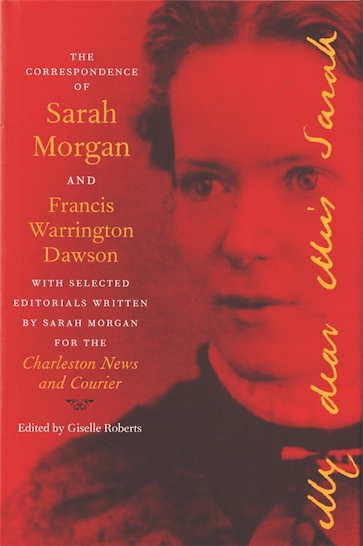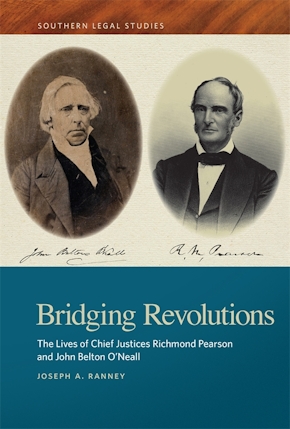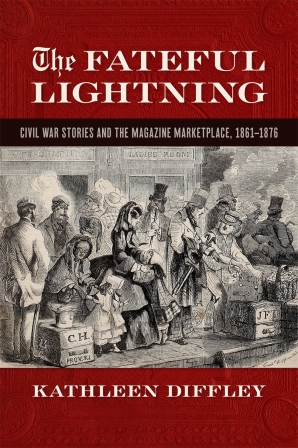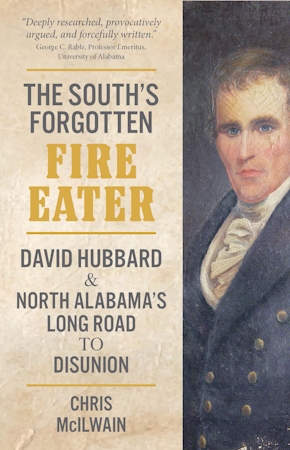The Correspondence of Sarah Morgan and Francis Warrington Dawson, with Selected Editorials Written by Sarah Morgan for the Charleston News and Courier
Title Details
Pages: 344
Illustrations: 11 b&w photos
Trim size: 6.000in x 9.000in
Formats
Hardcover
Pub Date: 06/01/2004
ISBN: 9-780-8203-2591-0
List Price: $50.95
Related Subjects
The Correspondence of Sarah Morgan and Francis Warrington Dawson, with Selected Editorials Written by Sarah Morgan for the Charleston News and Courier
Skip to
- Description
- Reviews
The private and public writings in this volume reveal the early relationship between renowned Civil War diarist Sarah Morgan (1842-1909) and her future husband, Francis Warrington Dawson (1840-1889). Gathered here is a selection of their letters along with various articles that Morgan wrote anonymously for the Charleston News and Courier, which Dawson owned and edited.
In January 1873 Morgan met Frank Dawson, an English expatriate, Confederate veteran, and newspaperman. By then Morgan had left her native Louisiana and was living near Columbia, South Carolina, with her younger brother, James Morris Morgan. When Sarah Morgan and Frank Dawson met, he was mourning the recent death of his first wife. She, in turn, was still grieving over her family’s many wartime losses.
The couple’s relationship came to encompass both the personal and the professional. To free Morgan from an unhappy dependence on her brother, Dawson urged her to write professionally for his paper. During 1873 Morgan wrote more than seventy pieces on such topics as French and Spanish politics, race relations, the insanity plea, funerals, and fashion gossip—-editorials that caused a sensation in Charleston.
Only after attaining financial independence through her secret newspaper career did Morgan marry Frank Dawson, in 1874. Morgan’s commentary gives us a candid portrayal of the way one southern woman viewed her postwar world—-even as she struggled to find her place in it.
This compelling volume follows two very extraordinary people as they tried to remake their lives and themselves in the tumultuous years of the post-Civil War South. Roberts is the perfect historical guide: her expert editing, which interweaves published work with private correspondence, elegantly frames the material and draws out its significance, all while allowing her protagonists to tell their own stories. The surprising twists and turns remind us that the unique circumstances of individual lives can provide the most valuable insights into larger patterns of historical change.
—Laura F. Edwards, author of Scarlett Doesn't Live Here Anymore
This book adds immeasurably to our sense of who the Civil War diarist Sarah Morgan was and gives us new insight into the woman of the postwar years. Roberts's decision to include a selection of Sarah's newspaper pieces alongside the correspondence between her and the Charleston editor Francis Warrington Dawson is one that scholars will applaud. She has done a splendid job.
—Charles East, editor of The Civil War Diary of Sarah Morgan
Sarah Morgan and Francis Warrington Dawson are each well known figures in their own right in southern studies. Their courtship correspondence constitutes a surprisingly compelling love story marked by Dawson's passion and Morgan's unwillingness to bury herself in marriage. The letters, embellished by a selection of essays Morgan wrote for the Charleston News and Courier, reveal the deep complexities of the genteel woman's life during Reconstruction. Morgan's shame at having to earn her living by writing is belied by the irreverent wit and sharp perception revealed in her essays on women's lot in the postwar South.
—Elisabeth Muhlenfeld, author of Mary Boykin Chesnut: A Biography
Roberts combines commentary, correspondence and editorials to provide a window to . . . South Carolina after the Civil War.
—Charleston Post and Courier
The letters and editorials . . . show how southern men and women were forced in the aftermath of the Civil War to create new identities in ways that somewhat reconciled old ideals with new realities. Roberts's insightful introduction places Morgan's correspondence and editorials in the context of the debate about the Civil War as a watershed event for elite southern women.
—Journal of Southern History
Readers and scholars interested in the post-Civil War South and in male-female relationships will find these letters both interesting and an important addition to what one hopes will be a growing collection of personal documents from this period of southern history.
—Civil War Book Review
Through recent works on other writers and journalists, such as Mary Bayard Clarke and Augusta Jane Evans, scholars are beginning to appreciate the rich literary legacy left behind by late-nineteenth-century southern women. Roberts's work represents an important contribution to that ongoing effort.
—North Carolina Historical Review
Roberts' book considerably enlightens readers as to who the Civil War diarist Sarah Morgan was and provides new insight into the post Civil War years in the South.
—McCormick Messenger



